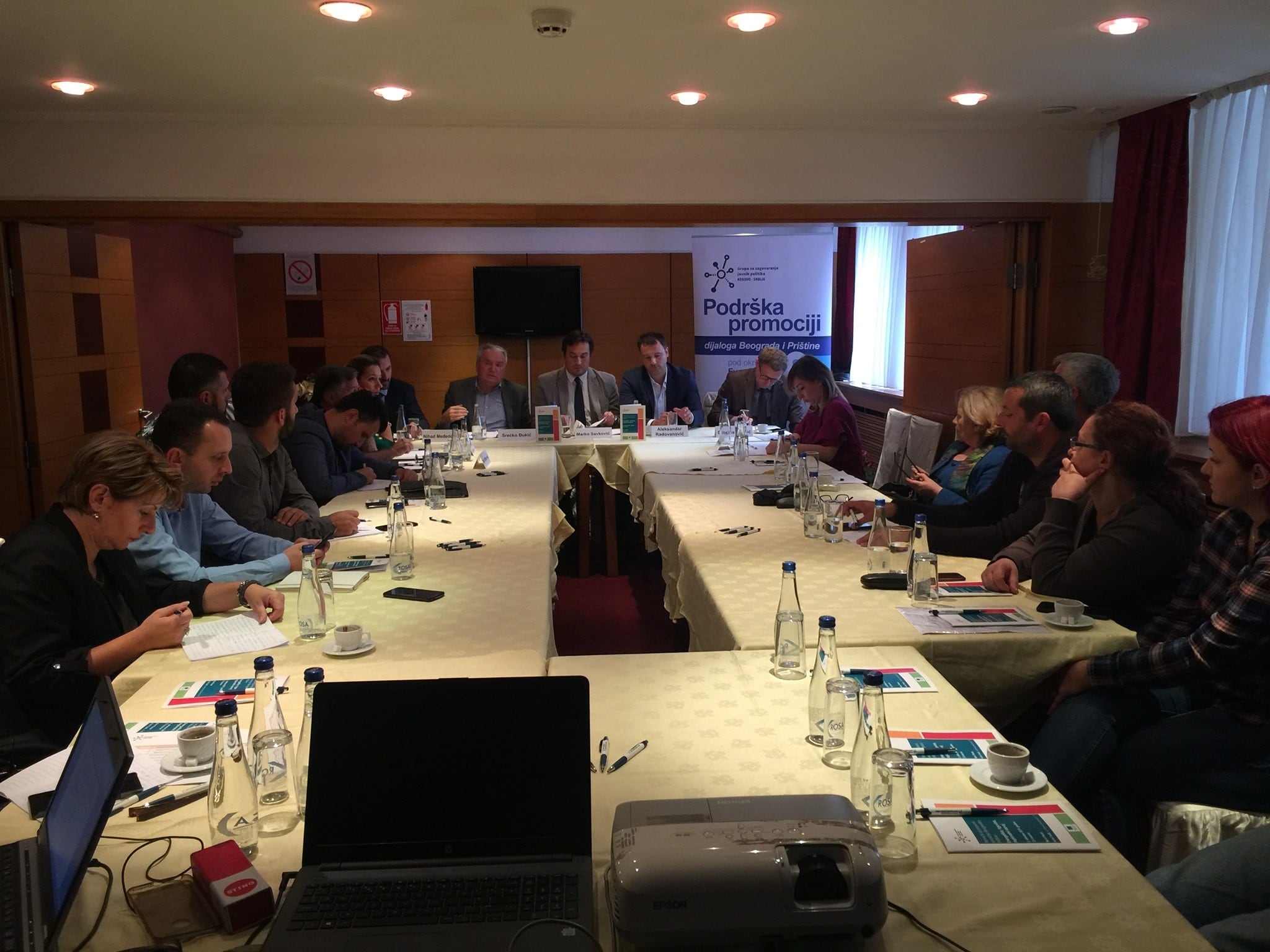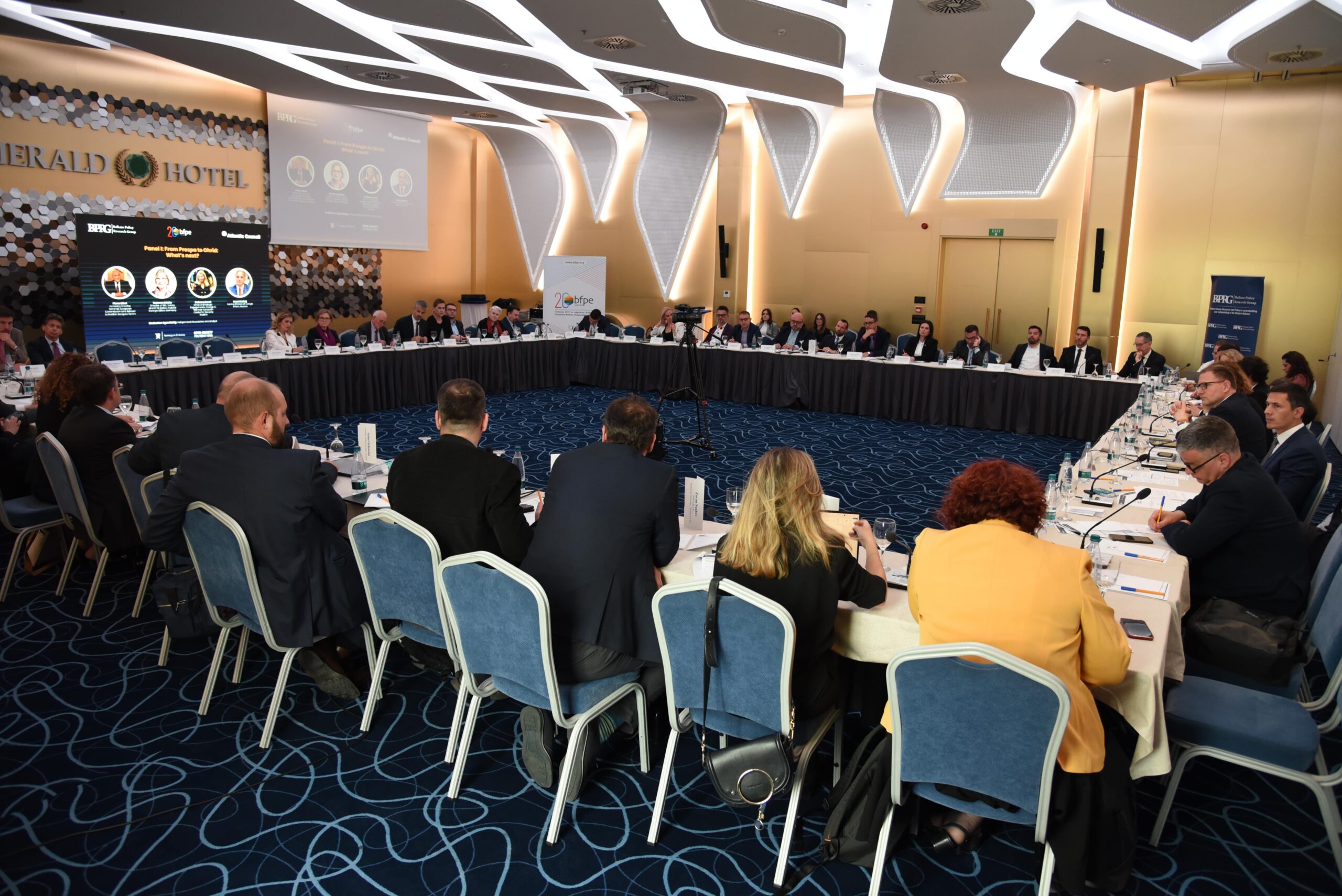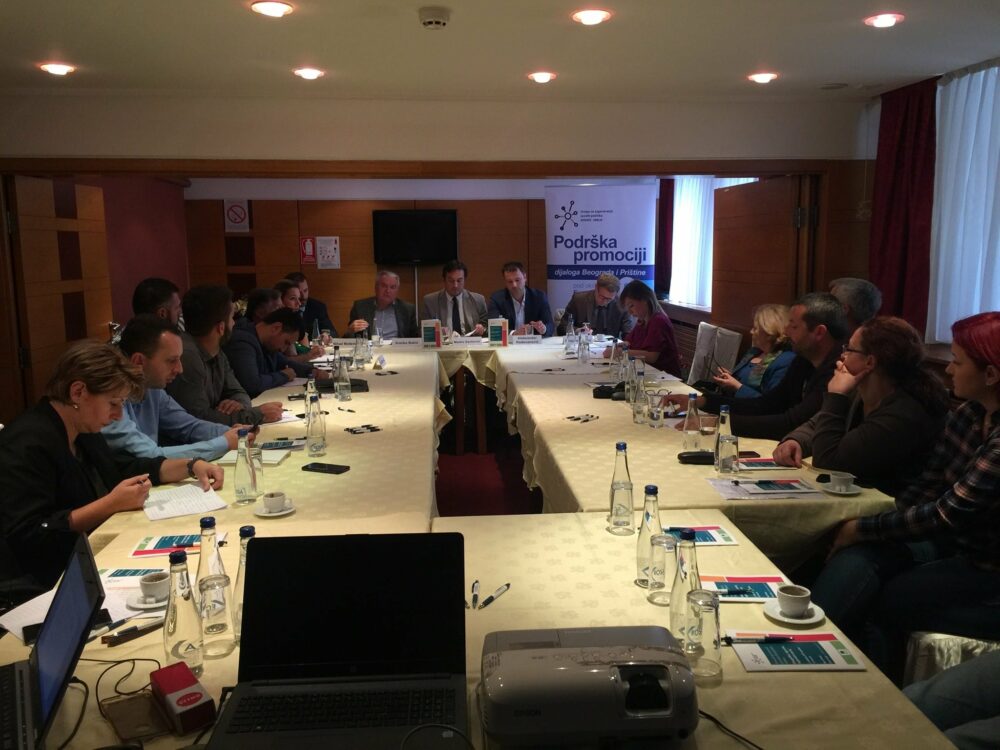
The Lawyers’ Committee for Human Rights, as a member of the Kosovo-Serbia Policy Advocacy Group, with the support of the European Union, organized a roundtable “Technical Agreements and Cooperation between Belgrade and Pristina – Energy, Trade, Regional Development”, with an aim to inform the public and promote the benefits of the technical dialogue between Belgrade and Pristina.
This roundtable brought together representatives of civil society, experts and representatives of the Serbian Chamber of Commerce, who discussed the progress made so far in the implementation of technical agreements, their impact on citizens and consequences they have on energy, trade and regional development.
Speaking about the issues of common interest between Belgrade and Pristina, an expert in economic policy and international relations Srecko Djukic stated that long-term investments in energy is needed across the region, because “the energy is a decisive factor for further development”.
He emphasized that energy management and concretely the gasification is essential for connecting the region, and above all for economic cooperation. Djukic said that if the region “wants to be part of the EU it must at least halve its coal production”.
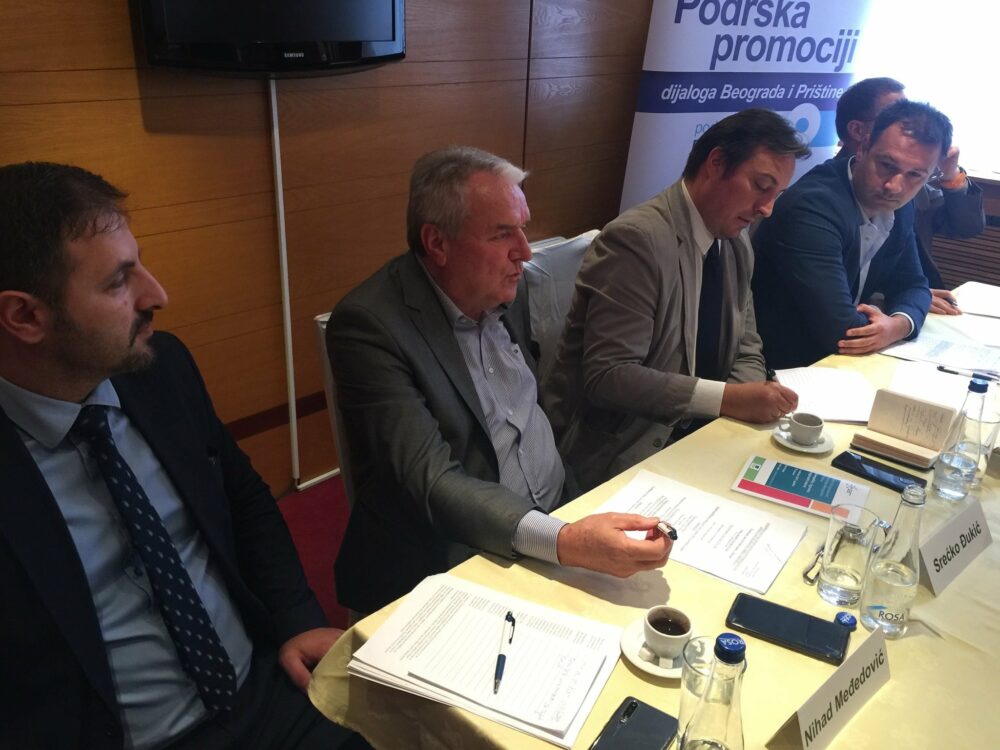
“The region needs a large pipeline for the energy supply because it is important for development,” Djukic said.
Analyzing the implementation of the technical agreement on energy between Belgrade and Pristina, Djukic said that political will is needed to solve all the problems.
“If we look from technical and expertise level, this issue could be solved, but there is no political will on either side. It should be analyzed how to make things better in this area, because it deals with the most basic human needs. These are not unsolvable things, it is possible to solve them in the near future,” Djukic stated.
The head of the Center for Regional Cooperation of the Serbian Chamber of Commerce, Aleksandar Radovanovic, emphasized that problems in trade affect regional cooperation. The introduction of non-tariff barriers hinders cooperation and has a negative impact on both economies, he said.
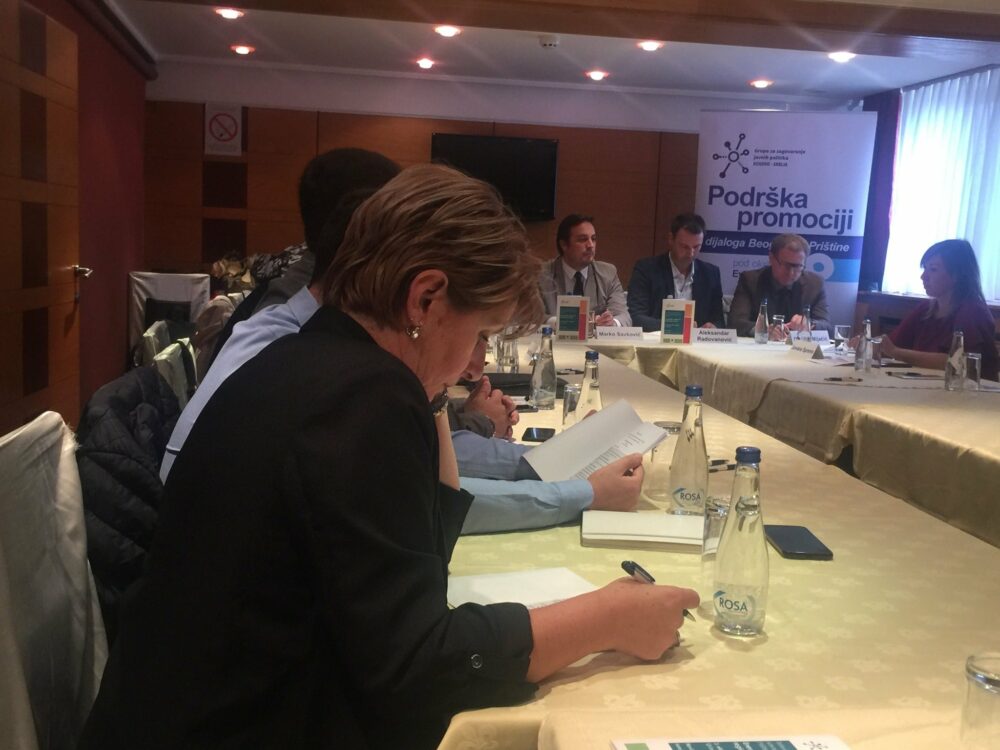
“The cooperation of business companies from Serbia and Kosovo contributed to the industrialization of Kosovo, because over 55% of imports from Serbia were raw materials which were used for further production by Kosovo companies. So, the introduction of tariffs caused lost not only for small and medium-sized companies in Serbia but for the Kosovo producers as well,” Radovanovic said.
According to him, the chambers of commerce of Serbia and Kosovo are cooperating but within other projects in the Western Balkans.
“We hope that the tariffs will be removed because we all lose,” he added.
Talking about the results in the implementation of certain technical agreements, Dragisa Mijacic, executive director of the Institute for Territorial Economic Development in Serbia, said that there has been progress in the issues related to freedom of movement, but still much remains to be done.
“In all agreements there are problems in realization, for example in education, customs and so on, these are not as big problems as the issue of the Association of Serbian municipalities. The energy agreement is perhaps the most difficult agreement, which has not been implemented and we don’t know what will happen,” he said, while adding that “cooperation is also needed in the field of environmental protection because pollution affects everyone.”
Mijacic stressed the cooperation of two sides in the development of active tourism as economic but also a social branch that contributes inter-ethnic communication, reconciliation and branding.
“There are examples of good cooperation and it’s not always so black. Although maybe at the micro level but there are certainly signs that people can function and work together if given the opportunity and framework to do that,” Mijacic said.
Representatives of the Novi Pazar business community and civil society organizations have called for resolving political disputes between Belgrade and Pristina in order to restore a favorable business environment, stating that companies from the region had good trade co-operation with the Kosovo businesses.
According to the participants, it is necessary to include citizens in the implementation of the technical agreements in order to open perspective for all, at local and regional level.
This roundtable is part of the activities anticipated in the “Promoting and Communicating Benefits of the Pristina – Belgrade EU Facilitated Dialogue” project, implemented by the KSPAG.
This activity was organized with the assistance of the European Union. The contents are the sole responsibility of Kosovo-Serbia Policy Advocacy Group Consortium and can in no way be taken to reflect the views of the European Union.


